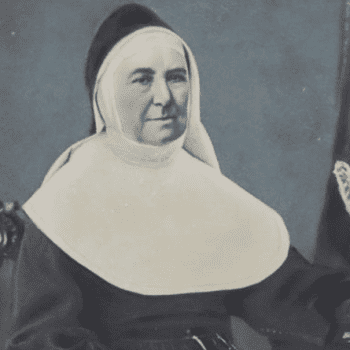It might not be Drake, sure, but what I wanted to note is that in two pop songs by major acts, I was able to find evidence of our culture being “at least not ignorant that marriage is a permanent partnership between a man and a woman ordered to the procreation of offspring.” As for the “by means of some sexual cooperation” clause, well, if anyone is confused about that, I suppose you could go listen back through Bey’s self titled Beyoncé album and consider that, however explicit the content might be, the album resolves into the final track Blue, named for Beyoncé and Jay-Z’s daughter, Blue Ivy.
So even if we want to simply take up the notion of ignorance, there is evidence that even pop culture has some conception of the permanence and natural purposes of marriage. Moreover, Edward Peters, who holds a Ph.D. in canon law, makes this helpful observation over at First Things that places the concept of ignorance in its proper canonical context:
It is not enough to show that one was “ignorant” about permanence in order to prove nullity. One must also show that said ignorance vitiated the will with which a marriage was attempted in order for that marriage to be declared null.
This isn’t to say Pope Francis was wrong. I think it is highly probable that there are a portion of marriages which are null, as Timothy Putnam discusses in his examination of the statement. My intention is to emphasize instead that while consenting to marriage, and so contracting a valid marriage, is simple, that does not mean it is easy. Particularly in a day and age when, despite what we may intuitively know, it is true that what many people are taught, to borrow my friend “Phil’s”∉ words, is “that divorce is real and marriage is not a permanent institution.” Consenting to marriage, like lifting an engine block out of a car, is rather simple, but that does not make it easy in the least.
Grace is what makes it so simple. The Sacraments don’t rest on our perfection, either in knowledge or in action. I didn’t have to be a saint with the knowledge of beatitude to be baptized. In fact, it is the Sacrament of Baptism set me on the path towards being a saint who can know and love God forever in His Trinity in Heaven because of the Grace it bestows. Likewise, the Eucharist doesn’t fail to perfect me in charity and conformity to Christ, so long as the priest intended what the Church intends and did and said what the Church said to do and say, and I receive it in a state of grace. While perhaps some of our young people are less “adult” in owning their faith than we would hope, that certainly doesn’t mean the Holy Spirit isn’t there at their Confirmation. Rather, it means the Holy Spirit is needed all the more to perfect them in love for and conformity with Christ.
This sort of thinking is also true of marriage. You can want to marry your very own Mary Queen of Heaven or St. Joseph, but I’m going to suggest the both are probably quite unlikely events. You, me, any of us, are going to marry (or are married to) a person who is still being sanctified, since that process tends only reach the end when you die. No one “really” knows what they are getting into when they contract these vows: ask anyone who has been married 50 or 60 years. We can’t know the whole of marriage from the start, because to know the totality of a marriage with someone is frankly terrifying and far too big. And nevertheless, in marriage we can still truly say “in my beginning is my end.”***
You will not always, at every second of a marriage, be a perfect image of Christ and the Church. Because, while sacramental marriage is a sign of that love shared between Christ and His Church, as a Sacrament, it bestows the Grace by which it conforms the spouses to and perfects them in that love. Marriage perfects the spouses; marriage does not assume perfect spouses. Like all Sacraments, marriage not only confers Grace on the spouses, it is pedagogical in conforming them to the end for which that Grace is given.
There is an exemplar of marriage, but it is not one that any of us are likely to fully realize upon saying vows. It not likely the spouses will fully understand the magnitude of their marriage vows and intentions in all their multifaceted reality while they are in the process of living out those vows day-to-day. Life, taken as a whole, is never so simple, nor so fully realized from the beginning. We take steps based on what we know, and in taking those steps, we come to know more truly the reality we live. The perfection is not the point which the spouses begin at; rather, as in human life, the spouses will find that “any action/ Is a step to the block, to the fire, down the sea’s throat/ Or to an illegible stone: and that is where we start.”****
That is, to borrow the words of another poet,
…To say that what love sees is true;
That this world’s fullness is not made but found.
Life hungers to abound
And pour its plenty out for such as you.
Now, if your loves will lend an ear to mine,
I toast you both, good son and dear new daughter.
May you not lack for water,
And may that water smack of Cana’s wine.
*Some might wonder about this, as it is noted other places that the Holy Father said “the great majority of our sacramental marriages are null.” This initial remark was unscripted, and as Pope Francis approved the changes in the official text, I will go with the officially approved text. As Spaemann eloquently wrote, in such a circumstance where there is no formal breach in which the the Pope clearly and explicitly teaches something that contradicts the doctrinal tradition by formally invoking his apostolic authority, it is appropriate to avoid claims which could “make the Pope an object of polemics and ridicule.”
**This is not the same as the licit/illicit distinction. Valid/Invalid distinguishes if something happened; while licit/illicit distinguishes whether, given something did happen, it happened legally or not.
∉Not to be confused with “Fil.”











